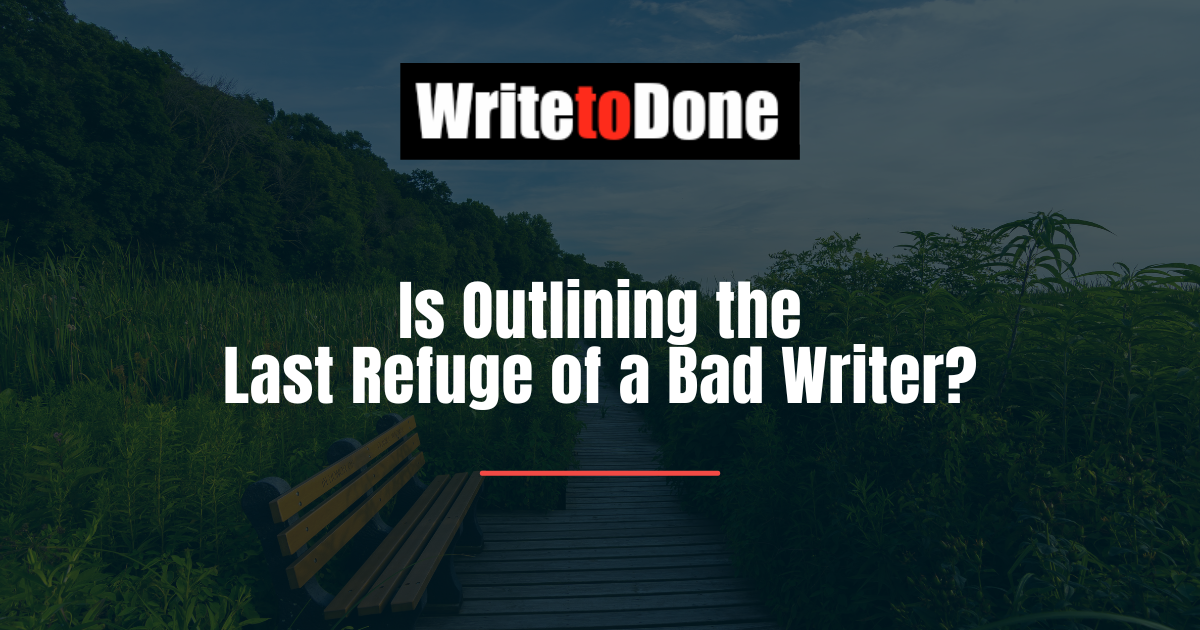Do you really need outlining?
In his book ‘On Writing,’ Stephen King claims ‘outlines are the last resource of bad fiction writers.’ King suggests they limit inspiration and the joy of creativity.
“Outlines are the last resource of bad fiction writers who wish to God they were writing masters’ theses.”
~ Stephen King
Jack Kerouac likely agreed about outlining, writing novels such as ‘On The Road’ in a stream-of-conscious style on a long roll of paper.
Other writers tend to do extensive preparatory work, including scene breakdowns, character studies, world building, internet research, and theme development.
“Prose is architecture. It’s not interior design.”
~ Ernest Hemingway
Examples of writers who fall into this camp are Ken Follett, who outlines extensively, and Norman Mailer, who used a detailed character timeline for books like ‘Harlot’s Ghost.’
So, again, does a writer really need outlining? In my own writing, I am willing to try anything in the hope it might work. I think the most important thing is to never get rigid, to experiment, to play—in a way that is invigorating and pleasing to yourself—the writer—particularly in the first draft (after you can go back and revise).
I have noticed that the longer and more complex a work the more likely I am to need an outline. In these cases, structure can keep you on track. It can also ensure you hit key dramatic moments. Then, too, it can make the writing process seem more finite and controlled, which can help you finish a work more expeditiously.
“‘Begin at the beginning,’ the King said, gravely, ‘and go on till you come to the end; then stop.’”
~ Lewis Carroll, in Alice’s Adventures in Wonderland
Still, on some level, though, I agree with King, that outlining, more often than not, stifles creativity. It is perhaps for this reason that I am strongly attracted to short form writing—poems, stories, brief humor pieces—since they require less preparatory work—and leave more room for the imagination.
The fun part of writing is discovering the story—an alchemic process that generally defies logic. It is for this reason that many writers first produce an exploratory draft. They trust in the unconscious—in the way a surrealist painter might—and hope that what is dredged up will be more revelatory than anything they might have pre-planned.
“First, find out what your hero wants, then just follow him!”
~Ray Bradbury
There is a scene in ‘A Clockwork Orange,’ where Alex, the leader of a vicious gang of droogs, notices his followers are plotting their own escapades rather methodically. Before attacking them, he states in V.O. ‘that the only ones use like inspiration and what bog sends.’
Yes, Alex is a vicious criminal—and not exactly a role model. But there is something to the idea that to be truly creative you need to wing it….to engage in a kind of symbolic dance. This feels like jumping off a cliff without a parachute. But often excellent work comes from taking just this type of risk.
This process of taking chances informs my poetry in particular—where, at times, I try to hear the poem, follow it if you will—finding the structure or style through the writing process rather than going in with a preconceived notion. I like to experiment, to wander, to try things that take me in strange directions. Instead of getting ideas, then, I let them get me—a kind of zen-like process that often makes writing more dynamic.
“I may not have gone where I intended to go, but I think I have ended up where I needed to be.”
~ Douglas Adams
To a certain extent this process can work for a novel too. There is an energy and power that comes from trusting your unconscious. Ironically enough, in doing so, the work just might seem as neatly planned and organized as if you had worked on an outline for months. As E.L. Doctorow once wrote: ‘Writing a novel is like driving a car at night. You can see only as far as your headlights, but you can make the whole trip that way.’
What’s your take on outlining?
















